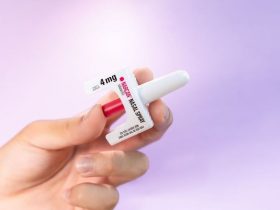Four in 10 U.S. adults report at least one of nine types of misrepresentation
THURSDAY, Oct. 13, 2022 (HealthDay News) — Four in 10 U.S. adults report misrepresentation and/or nonadherence to public health measures against COVID-19, according to a study published online Oct. 10 in JAMA Network Open.
Andrea Gurmankin Levy, Ph.D., from Middlesex Community College in Middletown, Connecticut, and colleagues examined the frequency of, reasons for, and factors associated with misrepresentation and nonadherence regarding COVID-19 public health measures. The analysis included survey responses from 1,733 adults (Dec. 8 to 23, 2021).
The researchers found that 41.6 percent reported misrepresentation and/or nonadherence to at least one of the nine types of misrepresentation, including most commonly telling someone they were with or about to be with in person that they were taking more COVID-19 preventive measures than they actually were (24.3 percent) and breaking quarantine rules (22.5 percent). Wanting life to feel normal and wanting to exercise personal freedom were the most commonly endorsed reasons for misrepresentation. Higher odds of misrepresentation were seen among all age groups younger than 60 years (ages 18 to 29 years: odds ratio, 4.87) and those who had greater distrust in science (odds ratio, 1.14).
“These findings suggest that misrepresentation and nonadherence regarding COVID-19 public health measures constitute a serious public health challenge,” the authors write. “Future work is needed to examine strategies for communicating the consequences of misrepresentation and nonadherence and to address contributing factors.”
Copyright © 2022 HealthDay. All rights reserved.







